Cocoon
I was wrong about this being a spaceship through time. It's better.
This week Texas state representative Alfonso "Poncho" Nevárez, Jr. speaks out for the first time since announcing he was leaving the legislature and entering rehab, though not in that order. Got to tell you, looks like Poncho’s doing OK. He almost makes sobriety sounds like a good choice. Robin Whetstone offers another chapter from her Moscow memoir, Red Ticket, in which she gets wrapped up in something that convinces her she needs to move out of her boyfriend’s parents’ place. My friend Monte Williams offers a scholarly look at categorization as a comedic device and, apparently, a coping mechanism, and Rachel Megan Barker takes a look a Facebook memories.
And as always, we remember who we’ve lost and offer recommendations on what to do, read, watch, and listen to. Would you believe there is a Black Jewish throwback country singer from San Benito, Texas… who is a descendant of Davy Crockett … and that his music kills? You’re going to love Charley Crockett.
But first, did I ever tell you why I never saw Cocoon?
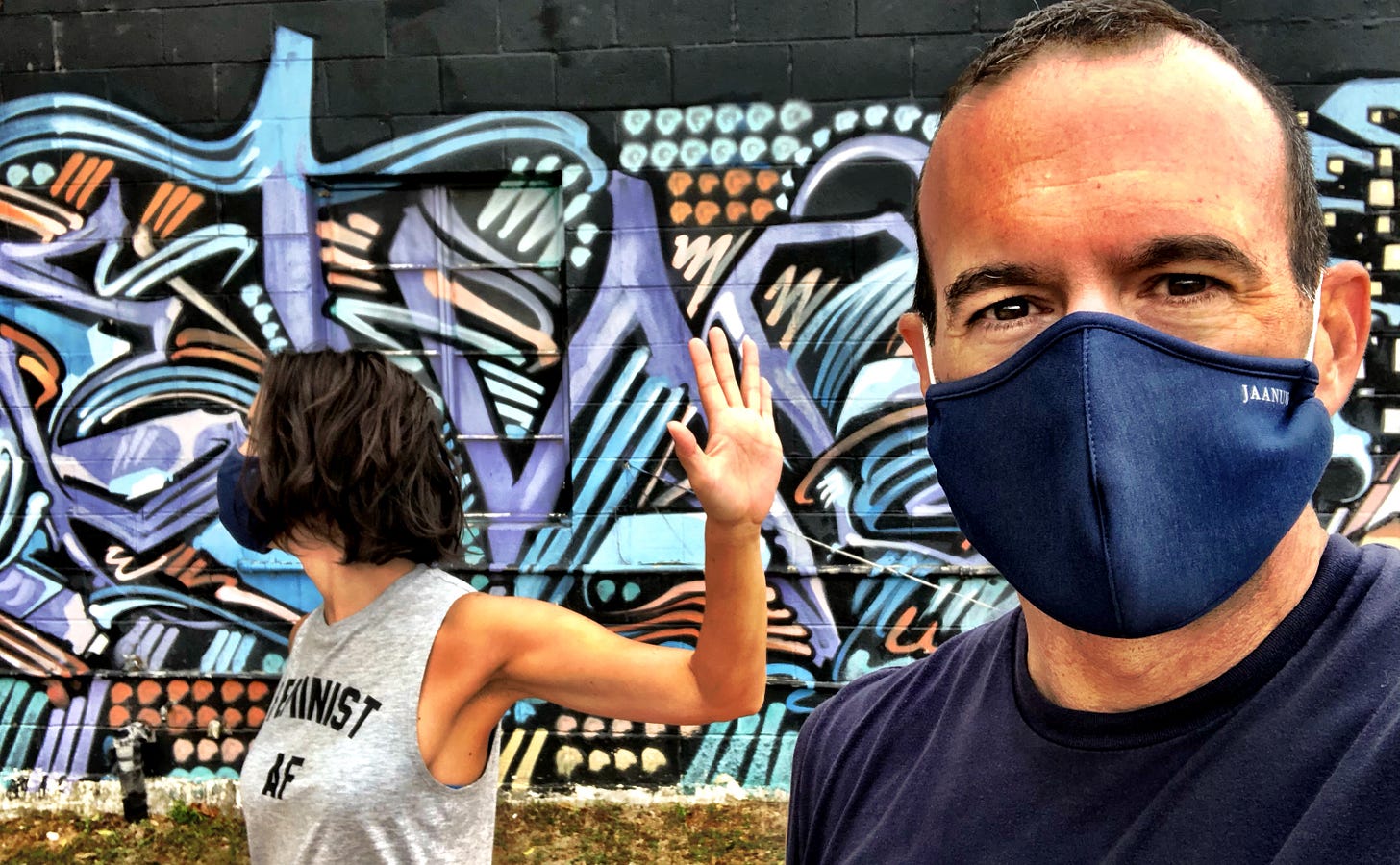
Cocoon, the Ron Howard fountain of youth movie, was hugely popular when it came out in 1985, but I had no interest in seeing it. Why would I? I was 15. I was the fountain of youth, except I had no interest in staying young forever. A story about retirees? Please. Besides, it had Wilford Brimley. I hated oatmeal for years just because he was Quaker’s spokesmodel.
It’s said you never cross the same river twice. Wilford Brimley’s passing gave me a different perspective on Cocoon and age, especially when I found out that the actor was my age in that movie. I’m old enough to play a grandfather? I know the last few months have felt like years, and every day is Blursday, Aprilvember the sixty-third, but does hitting fifty mean, I’m, you know… old? If time is a flat circle, does it come in a chewable? Can I use it as a hemorrhoid cushion? My friend Charlie Bonner tells me WAP is not an acronym for “with a passion,” and what are pants anymore?
It’s not that I didn’t realize I am twice as old as I needed to be to rent a car. I had felt that moment of horrible awareness that being at a Sweet Spirit concert at the Barracuda at 1:30 in the ayem didn’t make me cool, it made me look like That Old Guy in the Ill-Fitting Hoodie.
As I approached my fiftieth birthday on March 11 — yes, that March 11 — I grew afraid that all life had left for me was a string to play out, medicinal breakfasts of oatmeal, an office job to putter through, a generalized ridiculousness to make peace with, and — when it came to young people — my own personal invisibility cloak. The lights were flashing. Seating for the third act had begun, which was good, because I needed a nap.
Then a friend (Scott Remley, who has intermittently and unintentionally played important roles in my life) called to wish me a happy birthday, and we started getting each other all worked up over what this coronavirus, then peaking in Europe, would mean for society. By not taking the virus seriously in February, our leaders had set our country on a course that would last until the summer.
Until then, I had recognized every epochal change in my lifetime only in the rearview mirror, never catching what the internet, hiphop, or streaming meant until it was too late for me to play in those sandboxes. Not this time. In the course of a phone call I became one of those weirdos excited about our mission. In retreat from a biological enemy, we were about to upload analog society into the cloud in a mass digital migration. In moving our office monitors onto our kitchen tables, we were boarding spaceships, but instead of traveling through space we were traversing time.
I took lessons from astronauts: go outside, set a routine, and pace yourself for the long haul. I became aware of time as a measure of capacity and not a signal of expiry. I felt this unit’s defined parameters. Like an astronaut, I set myself to tasks — daily exercise, finishing a book project, growing this newsletter into a collection of voices — to fill the journey while we traveled through time, escaping a plague, heading toward safety.
I guessed, based on the epidemiological trends in China and Europe, that we’d land in time to enjoy summer. I knew that a vaccine wouldn’t be around at least for a year, but I figured we’d see each other in June, right?
Then Texas and Florida opened up on Memorial Day weekend. This time, knowing what would happen gave no comfort. We began to lose more people every week than the we lost on 9/11, except this time we were killing ourselves. Now we are sending our children into schools, and we know what will happen.
I look at my sons and mourn the summer they did not have, the romances and odd jobs they will not know, the idle afternoons at the pool with their friends that became doomscrolling on top of beds for days on end.
Baseball has evolved from a charming pastime into a farce of socially distant celebrations and canned crowd noise. We pretend there will be a football season. The release date for a Christopher Nolan movie about preventing World War III gets moved, and moved again, and still again, a refugee through time. I looked at my sons, these tall, handsome men wasting their beauty and youth on their adoring dad. I would give anything to take them to Cocoon at the Paramount. I would give them the summer I spent before college when I worked at a resort. I would happily give them any year I wasted of my youth. There were so many.
The trip is taking longer than expected, but I have stuck to my onboard routine. The book is nearly done. This newsletter has grown, both in voices and in audience. I launched a live interview show at work and am working on an exciting new project that’s in the beginning stages. I put in the work on the mat and changed my diet. Nothing in my closet fits anymore, which is fine because at this rate I’ll never have to wear anything in my closet ever again.
This morning was like every single other morning. I rose at six. Weighed myself. Listened to a great episode of the Song Confessional podcast while doing sun salutations before checking out the latest episode of Good One: A Podcast About Jokes, while doing calisthenics and a kettlebell routine. This episode, “Comedy Under Quarantine - Five Months In,” should have been sad. I mean, this:
“Stand-up comedy, under its current model in most cities, is effectively dead at every level,” wrote comedian and Daily Show correspondent Roy Wood Jr. as social-distancing measures were ramping up across the country, “from the stadium act down to the open mic–er who just started last week.”
Not satisfied with killing more Americans than were killed in action in the Revolutionary War, the Northwest Indian War, the War of 1812, the Union side of the Civil War, World War I, the Korean War, the Vietnam War, and the War in Afghanistan, COVID-19 has also killed stand-up comedy. The entire construct by which our society communed in laughter is now dead except for the two-drink minimum, which has replaced baseball as the national pastime.
Comedians could have simply quit. No comedy clubs means no comedy tours, nowhere to hone your craft, no rooms where laughter created feedback loops. And for a while, they mourned. That part of their lives and our culture was over. Patton Oswalt mocked this by standing in his yard wearing a bathrobe, yelling jokes at his neighbors. It’s funny because it’s blue.
But then comedians learned, as Nikki Glaser said on Good One, “You can adapt and move on.” She’s doing stand up on Instagram Live and on Zoom calls where the audience unmutes themselves so she can hear the laughter. She even guest-hosted Jimmy Kimmel Live! from her parents’ basement.
Another comic has launched Comedy Crossing, which bills itself, quite convincingly, as “the world's first-ever Animal Crossing standup comedy show.” You, the comedy-going public use Eventbrite to access a Zoom broadcast of comedians performing through their Animal Crossing avatars on the Nintendo Switch platform. If you didn’t understand that sentence, let me try to explain it to you: The future means you don’t have to go into a crowded basement to access comedy. You can be, literally, in Timbuktu, and see a funny person tell jokes while looking like an adorable barnyard animal instead of how they usually appear, as an unhealthy human being.
What started as workarounds have accelerated into rapid transformations. It turns out far from the dystopian movies we were fed in the Before Times, technology is saving us from nature. My wife, sitting about five yards to my right, has launched a super PAC to help Joe Biden win Texas and is taking chess lessons over video calls from a gentleman across town — all without putting on shoes and most often pants. This is more than the new growth that comes after a forest fire, different in kind from the tree that envelopes a metal fence. We are witnessing, in real time, a society evolve by creating new cultural forms.
We are not on spaceships. We are in cocoons, and the work we do now determines, more directly perhaps that at any time in our adult lives, who we will become. Unlike the old codgers in the Ron Howard movie, this cocoon doesn’t mean we will never get old and never die. In fact, Cocoon was misnamed. They weren’t becoming butterflies, but vampires. This time — the Uncertain Now — is a better home for the cocoon metaphor than that ‘80s movie. Our culture is becoming something new at a speed and scale we may never again see in our lifetimes.
I don’t wanna be this way forever. I want to become a bunch of new things, spinning off recreations and iterations until I’m done. So tell me, what kinda butterfly you wanna be?
How I’m doing
by Alfonso "Poncho" Nevárez, Jr.
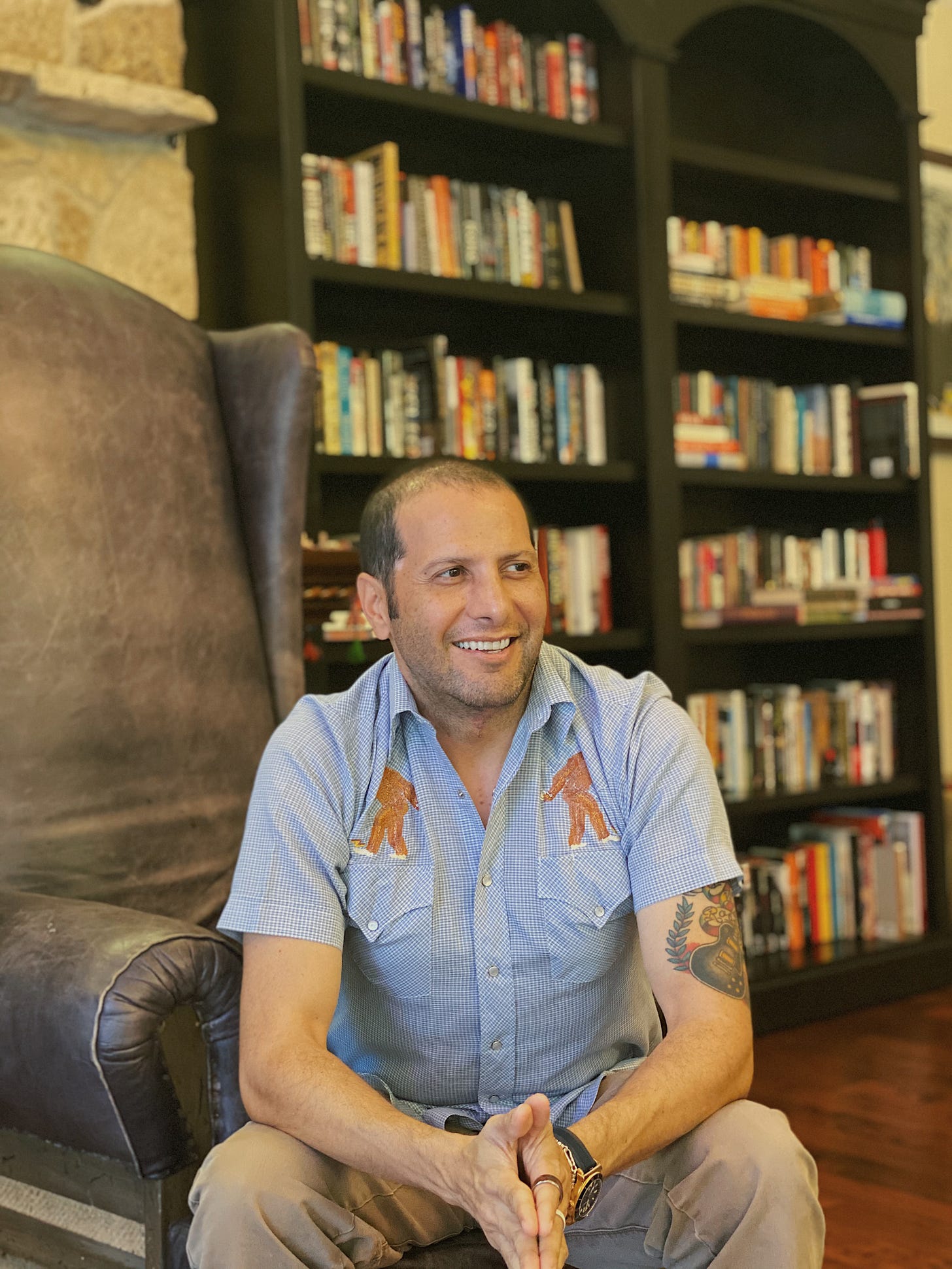
My friend Alfonso "Poncho" Nevárez, Jr. is not running for re-election to the Texas legislature, where he has represented a district larger than most states since 2013. He has been a colorful character in Austin, as famous for his Austin apartment full of electric guitars as when he allegedly threatened and admittedly put his hands on a Republican state lawmaker for calling Immigration and Customs Enforcement on people protesting an anti-immigration bill. After the last session, Texas Monthlycalled him “hotheaded, assertive, mischievous, and prone to brawling,” which could be read as a compliment but was intended differently.
Lately, he’s been most famous for accidentally dropping an official state house envelope at the Austin airport. There are two things about this envelope that matter to his story: inside were two grams of cocaine, and on the outside of the envelop was his name. Here, for the first time, he speaks out publicly about how he’s doing.
I see now that what needed to change was me. I work on that every day and I am grateful for the chance to do so.
Red Ticket: My Departure
by Robin Whetstone
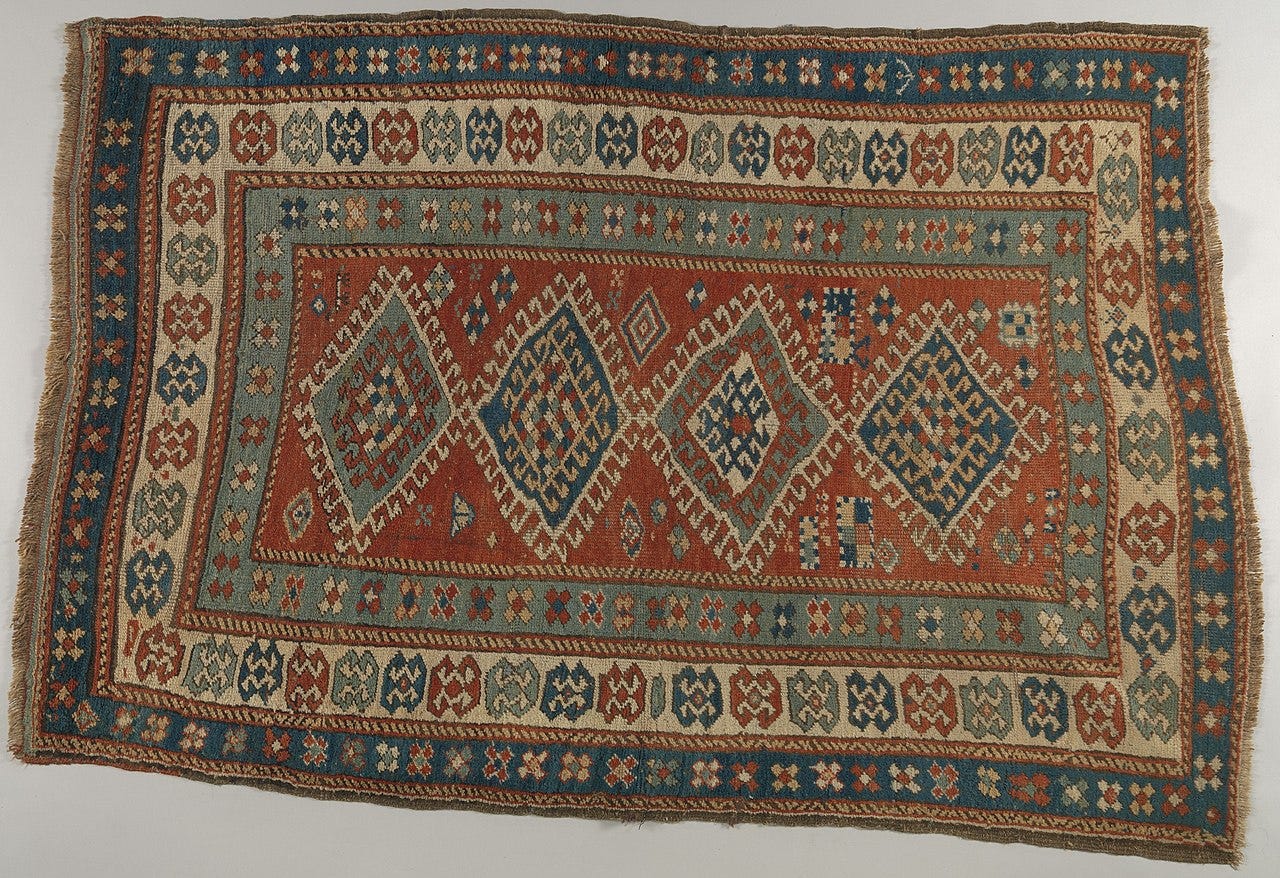
Every weekend we serialize Red Ticket, Robin Whetstone’s memoir of her time in Moscow in the early ‘90s. This week, she gets wrapped up in something, and it’s her last straw.
“No,” said Lyosha. “I told her to sleep in your room. That’s the last I saw of her.”
“Oh no,” I thought, “here they come.”
Publish or Perish
by Monte Williams
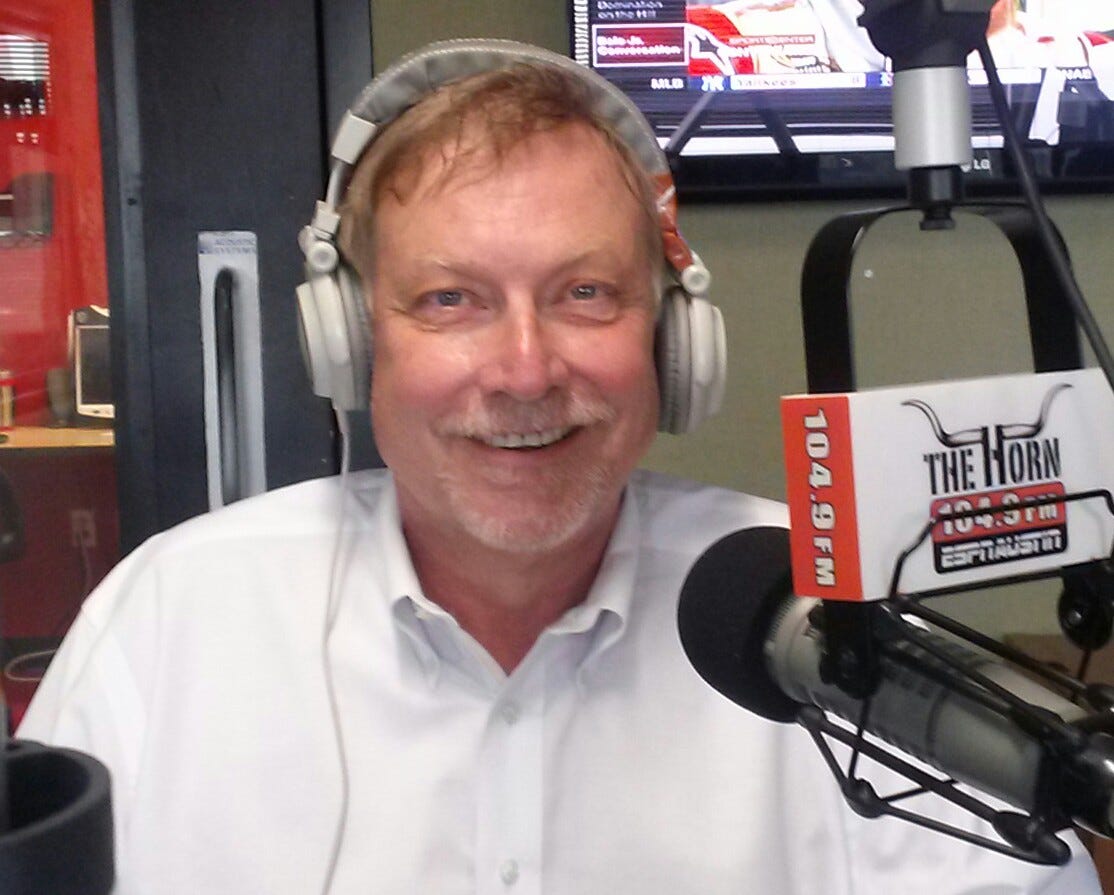
My old friend Monte Williams, who showed up in June with “Content for Jason,” is back what a pedantic clinician might merely deem evidence of emotional instability, if not outright madness, of which I confess a preference over madness by degrees. He is turning his quarantine into a science project, one concludes, hopefully, preferring a literally interpretation of what follows over that of the aforementioned clinicians. I look forward to further documentary evidence of his unraveling, but let us not anticipation of the inevitable distract us from the table set before us. Enjoy.
Where will this research lead me? Who cares as long as my research continues to be fully funded.
Memories
by Rachel Megan Barker
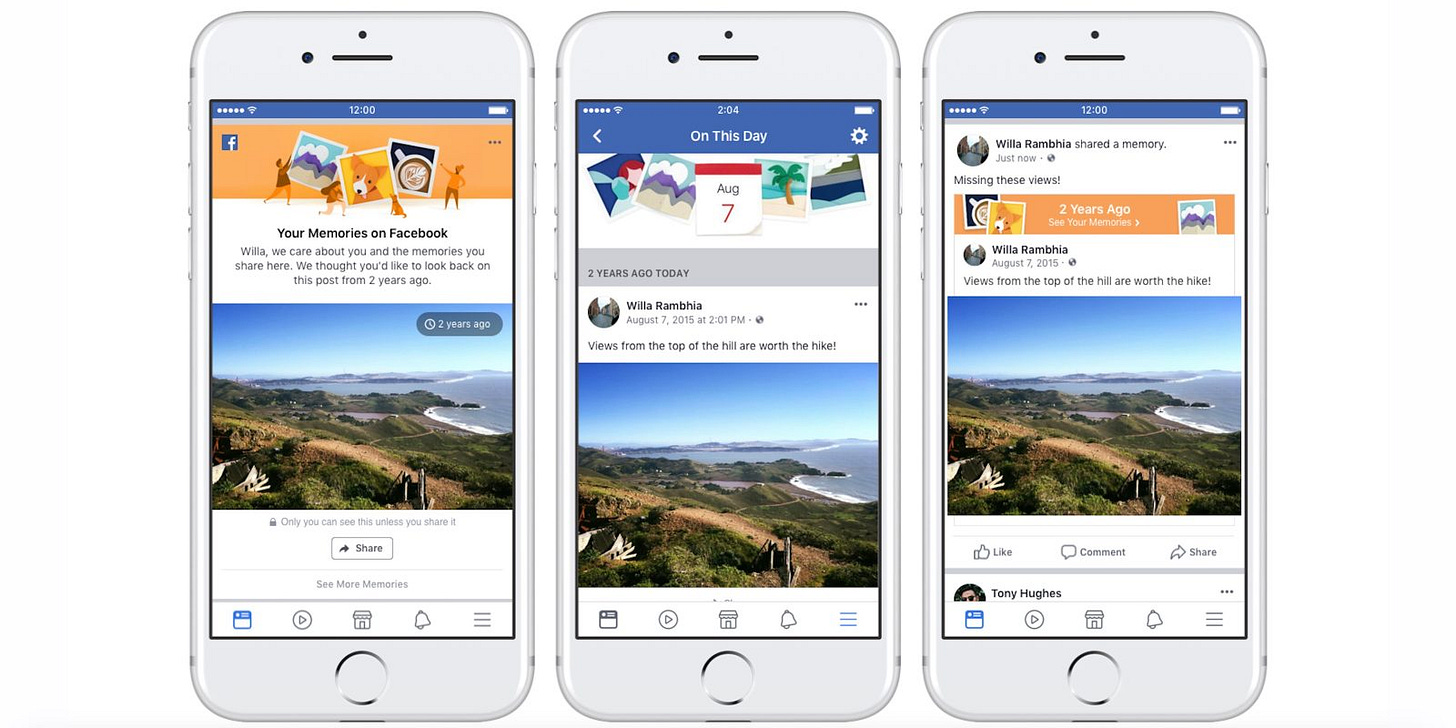
Rachel Megan Barker, our highly caffeinated itinerant feminist and political organizer, checks in from quarantine with how strange it is to see evidence of a past life every day on Facebook Memories.
Looking at Facebook Memories feels similar to looking at a photoshopped picture of myself hanging out on Mars. Like, “sure, seems fun but obviously not a thing that actual people actually do.”
RIP
How we’re getting through this
Making Korean meatballs
Going to an underwater museum in Greece
Having business meetings on Grand Theft Auto
Learning how to make fish tacos from a laid-off restaurant worker
What I’m reading
3rd & Lamar: “Austin Writers Capitalize On The Business Of Politics”
Axois: “Instagram morphs into an information powerhouse”
Molly Ball: “How COVID-19 Changed Everything About the 2020 Election”
Jerry Brewer: “Pete Carroll gets more out of football players by seeing more than football players”
“You never would have thought that this medium would have done some good here, but there’s something about the fact that a guy is sitting in front of the screen and his face is on the screen and everybody’s looking at him and he’s telling us what he thinks and feels,” Carroll said. “I’ve thought about this a number of times: It’s different than being in a room together when you’re sitting with guys behind you and you can’t see them. This is one on one, and you’re showing us exactly who you are. It’s just been an amazing time.”
Philip Bump: “Trump actually doesn’t appear to understand how bad the pandemic is”
Joe Coscarelli: “How Phoebe Bridgers (Begrudgingly) Writes a Rock Song”
Eve Fairbanks: “The 'cancel culture' debate gets the fight for free speech entirely wrong”
By the mid-20th century, though, “free speech” had acquired a hopeful reputation as the warp that could hold the ragged weave of America together. Alabama Gov. George Wallace said in a 1964 address that “freedom of speech” was one of the most important things civil rights advocates were trying to take away from the South. All he wanted, he claimed, was for “truth” to be put to “free and open encounter.” In Masai culture in Kenya, a colorful stick is used to impose order on village debates. If you hold the stick, nobody is allowed to interrupt you. By the end of the 20th century, “freedom of speech” had become that stick in America. If you waved it — or so some people hoped — you could not be talked over. You could not be displaced.
FiveThirtyEight: “Many Americans Are Convinced Crime Is Rising In The U.S. They’re Wrong.”
Frederic J. Frommer: “A WWII hero with one leg wanted to pitch in the MLB. In 1945, he got his chance.”
Ryan Holiday: “It’s Always the Time to Act Bravely”
HuffPo: “Better With Age: The Holland Taylor Story”
It’s like horseshit at the rodeo. I’m really going great guns here.
Illinois News Bureau: “Journalists’ Twitter use shows them talking within smaller bubbles”
The large elite/legacy cluster, with some of the most influential news media prominently represented, was also among the most insular, she noted. More than 68% of the cluster members’ Twitter interactions with other journalists were within the group.
MIT Technology Review: “The problems AI has today go back centuries: Algorithmic discrimination and “ghost work” didn’t appear by accident. Understanding their long, troubling history is the first step toward fixing them.”
Morning Consult: “Analysis: Unemployment Insurance Hasn’t Disincentivized Workers From Re-entering the Job Market”
The Lancet: “The effects of social deprivation on adolescent development and mental health”
…the decrease in adolescent face-to-face contact might be less detrimental due to widespread access to digital forms of social interaction through technologies such as social media. The findings reviewed highlight how physical distancing might have a disproportionate effect on an age group for whom peer interaction is a vital aspect of development.
Rick Steves: “I’m Traveling, Even Though I’m Stuck at Home: For the past 30 years, I’ve spent every summer abroad in Europe. Now I’ve realized that traveling isn’t just a pastime—it’s a mindset.”
Vulture: “In Veep’s Coronavirus Episode, Selina Meyer Would Be … Competent?”
WSJ: “The Curious Wisdom of Amnesiac Voters”
What I’m watching
Posted Dessa’s TEDTalk last year about how to fall out of love, and I’ve been thinking about it ever since, so now you get another chance to see it. Legit one of the most remarkable lectures I’ve ever watched.
Sam Jay’s Netflix comedy special had me howling.
Lena Waithe’s Twenties is bingeable on Amazon Prime if you like queer BIPOC Hollywood stories. (Charlie, I can feel you right now.) It’s also mercilessly and assuredly quick paced. Critics loved it. I only found it when I was messing around on Amazon Prime looking for something to fill up time. Bonus: great music on the soundtrack I’d never heard before, including songs from Nipsey Hussie, Little Simz, Melii, and Soaky Siren.
What I’m listening to
There will be a vaccine for the coronavirus before there is one for Caroline Rose’s infectious pop. Whenever “Bikini” comes on, I start chair dancing.
Fresh Air on the Margaret Sullivan’s book about the demise of local news was both shocking and maddening. No one thought to change the business model when the Internet came along?
There is no one in the world like Charley Crockett. A descendant of Davy Crockett with European, African, Cajun, Creole and Jewish roots, Charley grew up in San Benito — hometown of Freddie Fender! — and was raised in a trailer park in Los Fresnos. And people, those are the least colorful details in his young life.
What do you think of today's email? I'd love to hear your thoughts, questions and feedback. I might even put ‘em in the newsletter if I don’t steal it outright.
Enjoying this newsletter? Forward to a friend! They can sign up here. Unless of course you were forwarded this email, in which case you should…
Want a way to send gifts and support local restaurants? Goldbelly’s got you hooked up.
I used this to order scotch delivered right to my door. Recommend.
Thanks to Noom I am down to my college weight, and haven’t had to cut out any foods. I hit my goal weight in May and have stayed within a few pounds either way ever since. This is easy. Noom is an app that uses psychology, calorie counting, and measuring activity to change your behavior and the way you think about food. I’m stronger and healthier than I’ve been in years. Click on the blue box to get 20% off.
Want a way to send gifts and support local restaurants? Goldbelly’s got you hooked up.
Currnt is a cool new platform where you can get paid to share your expertise on online panels. It’s LinkedIn for introverts.
I now offer personal career coaching sessions through Need Hop.
If this newsletter is of some value to you, consider donating. Honestly, I’m not doing this for the money. I’m writing this newsletter for myself, and for you. And a lot of you are contributing with letters and by suggesting articles for me to post. But some of you have asked for a way to donate money, so I’m posting my Venmo and PayPal information here. I promise to waste every cent you give me on having fun, because writing this newsletter for you is some of the most fun I’ve had. Venmo me at @Jason-Stanford-1, or use this PayPal link.

